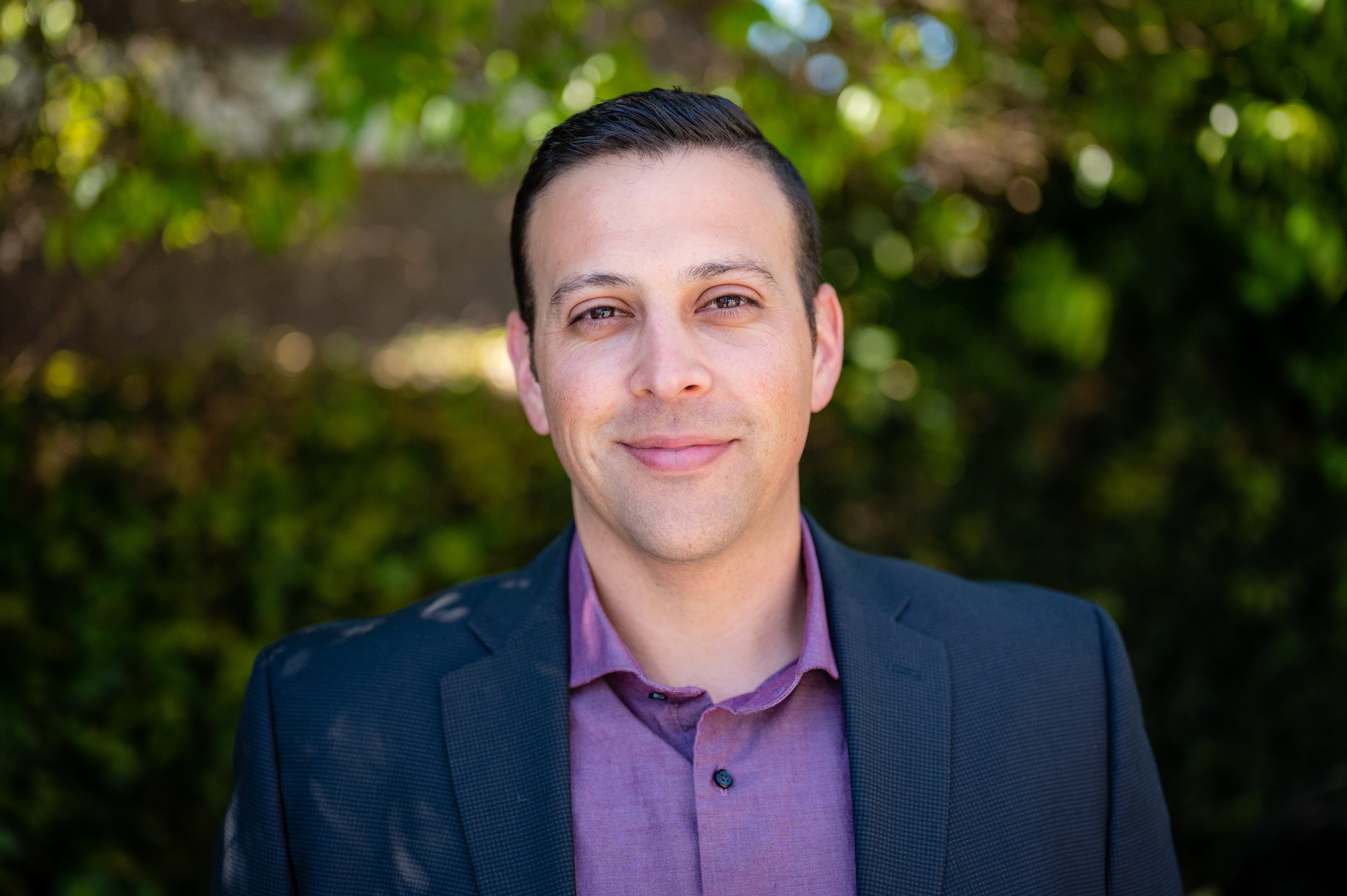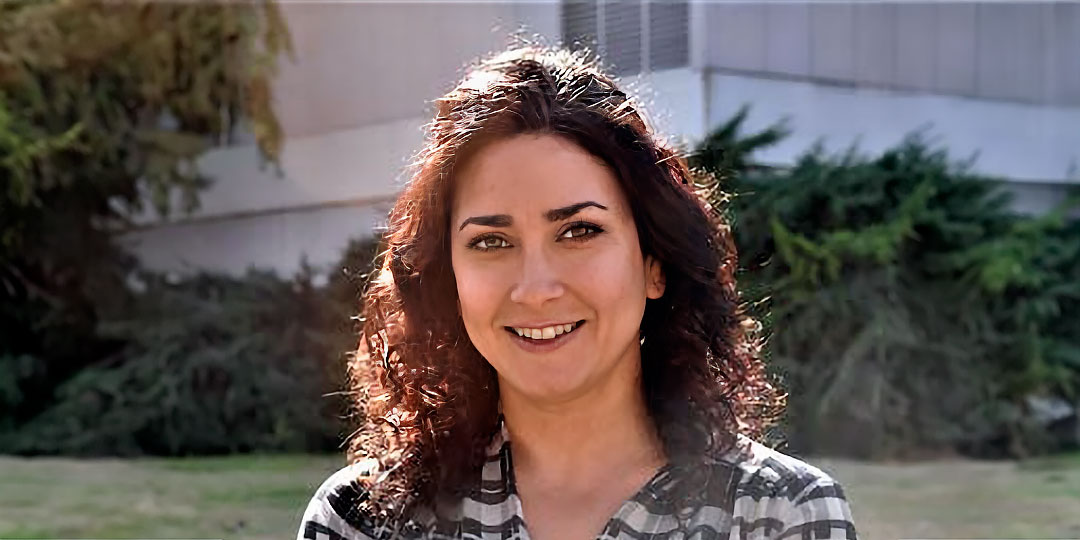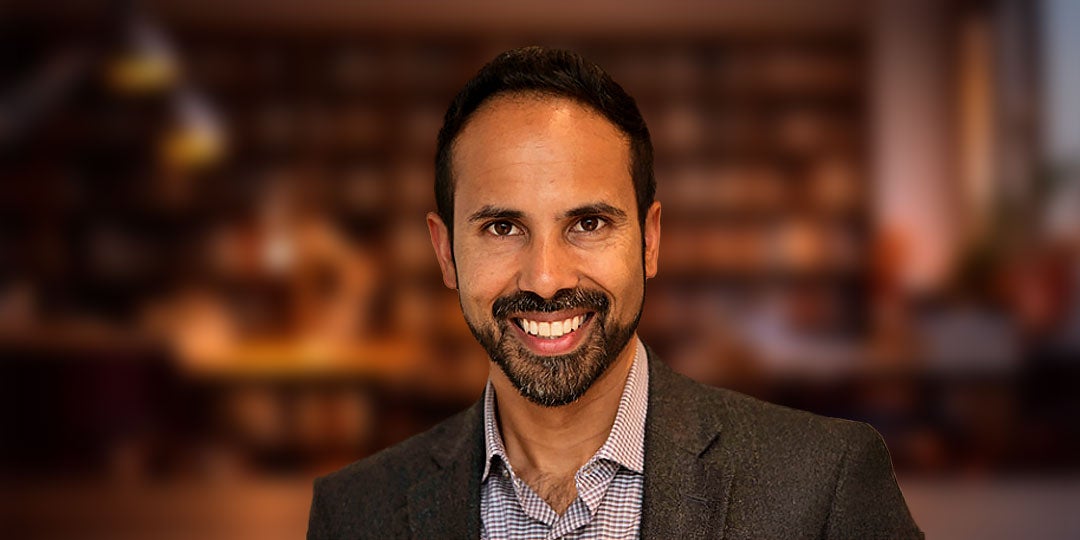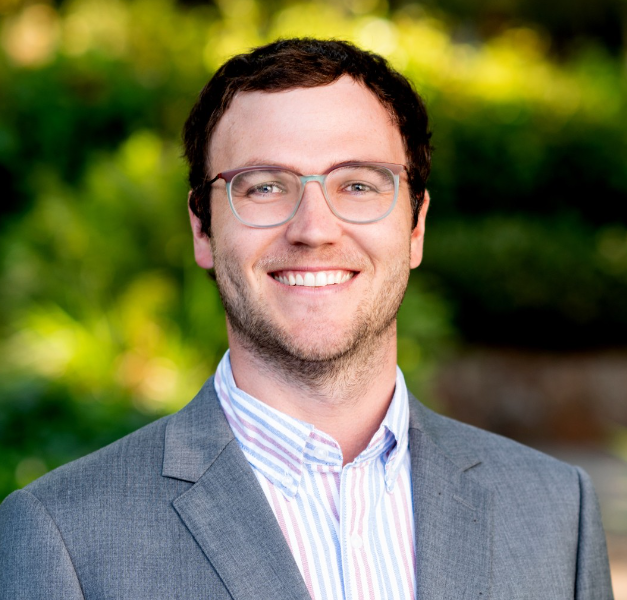Read about how MSSMP students toured the Cultured Abalone Farm to learn about conservation initiatives and sustainable aquaculture practices as part of the Blue Economy, which the World Bank defines as "sustainable use of ocean resources for economic growth, improved livelihoods, and jobs while preserving the health of ocean ecosystem.”
Master of Science in Sustainability Management and Policy (MSSMP)
Degree Program
Sustainability Specialists are #2 on the Top 10 fastest growing jobs according to the World Economic Forum's Future of Jobs Report 2023, with a growth rate of more than 30% and a net employment gain of 9 million new jobs per year. The demand for sustainability professionals continues to increase as governments, corporations, and the United Nations have set sustainability goals for decades to come. The Bureau of Labor Statistics has reported strong growth in all sustainability-related job categories, with a 11.9% increase in employment forecasted for 2019-2028. Global efforts to decarbonize in response to the climate crisis require a wide range of green jobs across sectors and industries, potentially creating 30 million jobs in clean energy, efficiency, and low-emissions technologies by 2030.
CSULB's College of Natural Sciences and Mathematics, College of Liberal Arts, College of Business, and the College of Professional and Continuing Education (CPaCE) have joined efforts to offer a Master of Science in Sustainability Management and Policy (MSSMP) degree program to meet the needs of this growing workforce. This program provides an interdisciplinary graduate degree that will empower students with in-demand technical, managerial, and problem-solving skills to guide the decision-making process in the context of sustainability.
Students will engage with regional and national sustainability groups and collaborate with various professionals from a wide array of industries, government, non-government, and academic organizations in order to excel as active leaders in sustainability fields.
The Integrative Capstone Experience course (6 units) will serve as the culminating educational experience for students in the MSSMP program. It is designed to integrate the transdisciplinary fields of the program’s curriculum. Under the guidance of faculty mentors, students will engage in a 12-week project with partner companies and non-profit organizations.
Please Note:
- Students enrolled in this program are eligible for some forms of financial aid, with the exception of the State University Grant (SUG) and Cal Vet College Fee Waiver.
- GI Bill benefits can be used for this program. Click here to learn more about eligibility, rates, and other details.
- Working professionals seeking to apply concepts of sustainability within an organization and the industry’s regulatory environment
- Those who want to pursue a career in the wide field of sustainability or advance from their current positions in related fields
- Technical, managerial, and problem-solving skills to guide decision-making in the context of sustainability
- A balance between theory and application of social, economic, environmental, business, and technical systems
- Mentorships with sustainability professionals
- A culminating capstone project within a professional setting that gives students real-world experience
- Evening courses
- How to define and apply sustainability principles and practices within professional responsibilities
- How the interaction of environmental, economic, and social values interact to foster or hinder sustainability and sustainable practices
- How to analyze and experience local, national, and global sustainability across disciplines
- How to apply sustainability principles within the context of personal and professional values
- How to develop proficiency with data collection, analysis, and representation on a range of sustainability-related topics
- Sustainability and Society
- Sustainability Science
- Sustainability Case Studies
- Data Analytics and Sustainability
- Sustainability and Organization Theory
- Environment, Law, Policy, and Ethics
- Decision-Making and Uncertainty
- Benefit-Cost Analysis
- Environmental Economics and Policy
- Sustainability and Strategic Management
 Nanci Torres-Poblano Sustainability Specialist at CSULB Master of Science in Sustainability Management and Policy
Nanci Torres-Poblano Sustainability Specialist at CSULB Master of Science in Sustainability Management and PolicyBeing a part of the MSSMP program has allowed me to feel more confident in my current role. I have gained confidence in knowing that I have the skills needed to pursue any role I wish. I enjoyed getting to see how my classmates and I started to undergo career changes that aligned with sustainability. We got to celebrate each other and create a long-lasting support system.
Program Outline
Program Unit Requirement: 36 units
Required core courses:
SUST 601 Sustainability and Society: Introduction to sustainability using a transdisciplinary foundation based on social sciences and natural sciences. The focus is on developing the skills to integrate material from diverse disciplines to understand the human dimension.
SUST 602 Sustainability Science: This course will provide a comprehensive compilation of conceptual perspectives, methodological approaches and empirical insights of inter- and transdisciplinary sustainability science. Developed and taught by a transdisciplinary team of faculty, it will offer perspectives and topics focused on the development, integration, and application of knowledge about Earth systems.
SUST 603 Sustainability Case Studies: Examines the science of climate change and the prospect of global, regional, and local sustainability within the context of a warming planet. Uses contemporary case studies to examine climate impacts on natural and human systems and to evaluate climate-change policies.
SUST 604 Data Analytics and Sustainability: The course explores how data analytics applied to the area of sustainability can help managers enhance economics, environmental impacts, and social performance.
SUST 605 Sustainability and Organization Theory: Explore the core organization elements for building highly sustainable organizations that can achieve both business and environmental objectives. Identify the business issues related to sustainability. Develop analytical tools for assessing and designing organization structures and processes to achieve high sustainability.
SUST 606 Environmental Law, Policy and Ethics: Focuses on the law and politics that govern, manage, and change the relationships between human activities and the environment. Examine how those policies are created, how people respond, and the underlying ethical debates.
SUST 607 Decision-Making and Uncertainty: This course provides tools that allow decision makers to make better choices when uncertainty exists. Tools may include decision trees, determining risk tolerance, identifying subjective and objective probabilities, and other techniques.
SUST 608 Benefit Cost Analysis: This course introduces how and when to use the tools of benefit cost analysis while considering issues of sustainability. Content includes identification of both private and social costs and benefits used to evaluate projects and policies within the context of sustainability.
SUST 609 Environmental Economics and Policy: Economic analysis of environmental problems that lead to market failure. Analysis of policy options to provide incentive compatible mechanisms to correct for market failure from externalities, the tragedy of the commons, and information inefficiencies.
SUST 610 Sustainability and Strategic Management: Examine the strategic sustainability issues confronting contemporary organizations. Explore strategy formulation and implementation process for creating sustainable organizations that can achieve both business and environmental objectives. Integrate sustainability into the business value chain to create sustainable competitive advantage.
SUST 699A Project Orientation and Support: Develop skills necessary to complete an applied project. Specific focus on proposal development and writing. Review of research methods and project deliverables. A grade of C or better is required for students to progress to SUST 699B.
SUST 699B Applied Professional Project: Complete an applied project. Specific focus on proposal development and writing. Give an oral presentation and produce a written report. A grade of B or better is required for students to pass.
Information Sessions
Potential students interested in learning more about this program are encouraged to attend a free information session. The information sessions include short presentations by a program representative, designed to provide you with an opportunity to ask questions and learn more about the program's benefits.
Upcoming online Information Sessions are listed below when they are available. Choose a date and click the link to register for that Zoom meeting. After registering, you will receive a confirmation email with details about joining the meeting.
If no sessions are listed below, then none are currently available. Please check this page at a later date to view updated sessions.
February 17, 2026 at 6:30 p.m. (Pacific)
February 25, 2026 at 6:30 p.m. (Pacific)
Admission Requirements
Admission decisions are based on consideration of the applicant’s previous academic record, statement of purpose, resume, and letters of recommendation.
Admission requirements for the MSSMP program include:
- A bachelor’s degree from an accredited university that includes the following coursework*:
- Some courses in Biology, Microbiology, Chemistry, Physics, Geology, Environmental Science, or Engineering.
- Microeconomics
- Minimum grade point average of 2.75 in the last 60 semester units attempted, and in good standing at the last college attended.
- A statement of purpose
- A recent resume
- Two letters of recommendation
*A student may be admitted conditionally so that required economic and science classes may be fulfilled prior to starting coursework.
How to Apply
To be admitted to the program, you must apply for admission using the California State University admissions portal called Cal State Apply. By applying online, you can start, stop, and save your application information throughout the process.
Note the following steps to begin the application process:
- Select a term to apply for (Fall).
- Sign in or create an account.
- Select "CSU Long Beach" as your campus and select "Extended Education" as the Source.
- Select "Sustainability Management" from the list of available programs; and once chosen, the program title will be highlighted in green, with a check mark to indicate that you have chosen the correct program.
- Use the dashboard to continue with your application for admission to the program.
Frequently Asked Questions
- Cost per unit: $1050
- Cost per 3-unit course: $3150
- Total cost of the program: $37,800
- Cost for books included in program tuition
Please contact Program Director Dr. Monica Argandoña at Monica.Argandona@csulb.edu.
Satisfy the university requirements for graduate admission:
- A bachelor’s degree from an accredited university that includes coursework in some of the following:
- Environmental Studies and/or Biology, and Economics
- Applicants with a bachelor’s degree in other disciplines may be considered if the applicant has the above course work completed prior to applying.
- In addition, the applicant must have:
- A minimum GPA of 2.75 in the last 60-semester units attempted and good standing at the last college attended
- A statement of purpose
- A recent resume
- Three letters of recommendation
Please note: We do not offer enough units per semester for international students to qualify for a student visa.
To be admitted to the program, you must apply for admission using the California State University admissions portal called Cal State Apply. By applying online, you can start, stop, and save your application information throughout the process.
Note the following steps to begin the application process:
- Select a term to apply for (Fall).
- Sign in or create an account.
- Select CSU Long Beach as your campus and Select Extended Education as the Source.
- Select Sustainability Management from the list of available programs; and once chosen, the program title will be highlighted in green with a check mark to indicate that you have chosen the correct program.
- Use the dashboard to continue with your application for admission to the program.
- Working professionals seeking to apply concepts of sustainability within an organization and the industry’s regulatory environment
- Those who want to pursue a career in the wide field of sustainability or advance from their current positions in related fields
There has been a 7.5% increase in LinkedIn members with a Sustainability job title. Top job with the greatest growth includes Sustainability Analyst, Sustainability Specialist, and Sustainability Advisor. Sustainability professionals may also have the title of Corporate Responsibility Manager, Sustainability Consultant, Sustainable Development Manager, and Sustainability Coordinator.
Admission requirements for the MSSMP program include:
- A bachelor’s degree from an accredited university that includes coursework in some of the following:
- Environmental Studies and/or Biology, and Economics
- Applicants with a bachelor’s degree in other disciplines may be considered if the applicant has the above course work completed prior to applying.
Please note: We do not offer enough units per semester for international students to qualify for a student visa.
The Graduate Record Exam (GRE) is not required.
The program requires 36 units. It will take 6 semesters to complete the program. Students take two 3 unit courses per semester Fall, Spring, and Summer semesters. In the final Summer semester students will undertake their Integrative Capstone Experience which is 6 units and will serve as the culminating educational experience.
The College of Professional and Continuing Education (CPaCE) registers students in courses.
The MSSMP cohort will advance together in the summer semester of the first year of the program.
- Students enrolled in this program are eligible for some forms of financial aid, with the exception of the State University Grant (SUG) and Cal Vet College Fee Waiver.
- GI Bill benefits can be used for this program. Click here to learn more about eligibility, rates, and other details.
Professional Advisory Board
Our Professional Advisory Board comprises distinguished sustainability professionals who bring a wealth of experience and expertise to our academic community. These leaders are dedicated to supporting our students through mentorship, guidance, and a robust professional network. By offering insights from their careers and sharing industry best practices, our advisory board members play a pivotal role in shaping the next generation of sustainability leaders. Whether you're seeking advice on navigating your career path or looking to connect with influential figures in the field, our Professional Advisory Board is here to help you succeed.

Co-CEO & CTO, Evolectric

Special Projects Manager, California Product Stewardship Council (CPSC)

Project Manager, HDR

Environmental Administrator, City of Irvine

Founder & CEO of ONYX Power, Executive Vice President of ConSol

Senior Vice President, Environment, Health & Safety, Takeda Pharmaceutical Company

Sustainability Coordinator, California State University, Long Beach

Water Resources Management and Planning Director, Chino Basin Watermaster

Senior Policy Associate, Building Decarbonization Coalition

Associate Partner, IBM Consulting, Energy & Utilities

Sustainability & ESG Lead, Zoom, Inc

Vice President of Strategic Customers for North America, Schneider Electric

Corporate Sustainability Director

Senior Executive Officer, LA Metro

Director of Global ESG, Ingram Micro

CEO, Vector Green Power

Sustainability Consultant

Director of Sustainability & Quality, Metric Designworks

Environmental Planner, California Department of Transportation (Caltrans)

Senior Sustainability Analyst, Clean Energy

California Branch Chief, NOAA Fisheries

Senior Director, Sales & Business Development, Capstone Green Energy

Sustainability Specialist, Office of Sustainability, CSULB

Consultant

Energy Education Specialist, Schneider Electric
Bill Beverley
Bill brings 20 years of engineering experience including systems engineering, power distribution, and expertise in vehicle electrification and batteries. He leads Evolectric’s technical strategy and sales, product development, and program management efforts; and provides subject matter expertise across all facets of electric drive systems, including battery, powertrain, and electrical architecture. He holds six patents in the electrified automotive sector, and has held leadership positions at IndiEV, Romeo Power, and Faraday Future as well as serving as technical project lead for Airbus, Gulfstream, and Boeing while at Moog Aerospace. Bill has a Bachelor of Science degree in Mechanical Engineering from CSULB and is chair of the College of Engineering’s Zero Emissions Workforce Advisory Group.
Joanne Brasch
Dr. Joanne Brasch leads projects at the California Product Stewardship Council (CPSC) that promote extended producer responsibility (EPR) and Product Stewardship in the textiles and clothing industry, including products such as carpet, mattresses, packaging, and fashion goods. With over 10 years of academic work experience, Joanne has held lecturer and research appointments at UC Davis, CSU Sacramento (CSUS), and Donghua University in Shanghai, China. Her topics of interest include supply chain sustainability, global markets and trade, EPR, and diffusion of innovation. Previously, Joanne was the Sustainability Researcher for the UC Davis Health System, where her efforts led to a systematic, cost-saving reduction of waste. Joanne has spoken at events including the California Higher Education Sustainability Conference, International Society for Industrial Ecology, American Reusable Textiles Association, Practice Greenhealth, and the Center for Environmental Health. She has received multiple CSUS Faculty Research Awards and Jastro-Shields Graduate Student Research Awards for her research. She has a PhD in Industrial Economics and Environmental Analysis from the University of California, Davis, where she also got a Master’s in Textile Science and a Bachelor’s in International Agricultural Development. All three degrees focused on global industrial systems for food and fibers.
Mark Christoffels
Mark is responsible for the establishment of sub-regional funding allocations for the 30 member agencies of the San Gabriel Valley Council of Governments under the Los Angeles County’s Measure M program, and represents the San Gabriel Valley on Metro’s Measure M and Long Range Transportation Plan Advisory Policy Council. He oversees all project implementation for programs including the Alameda Corridor-East program, which has been cited as a national model for addressing the impacts of freight rail traffic on local communities. Mark has been a practicing civil engineer in local government for more than 35 years, including 11 years in Long Beach. He was inducted into UCI’s Engineering Hall of Fame in 2017.
Sona Coffee
Sona Coffee is a sustainability professional who works with local governments to help transform cities into environmentally sustainable communities. She started her environmental public service career as the Environmental Manager for the City of Manhattan Beach, and her current work as Environmental Administrator for the City of Irvine is leading climate action efforts in Orange County. Sona earned her undergraduate and graduate degrees from the Price School of Policy at USC, with an emphasis in environmental policy. She also volunteers on the Sustainable City Commission for her hometown of Long Beach.
Debarshi Das
Debarshi Das is a climate technology executive with over 16 years of experience in global renewable energy and innovative zero emissions power products. He brings industry leadership in onshore and offshore wind energy, solar photovoltaics, battery energy storage, and building energy efficiency that span residential, commercial, and utility sectors. In addition to being the Founder & CEO of ONYX Power and the Executive Vice President of ConSol, he previously held management positions at the Los Angeles Cleantech Incubator, Romeo Power Technology, SunEdison, AREVA Wind, Clipper Windpower, and Procter & Gamble. Debarshi holds an MBA in International Management from the Arizona State University Thunderbird School of Global Management and a BS in Chemical Engineering from The University of Texas at Austin.
Deborah Donovan
Debbie is responsible for the global development and implementation of environment, health, and safety programs as well as sustainability strategy. Debbie brings over 30 years of experience across the pharmaceutical, petrochemical and refining industries. Prior to joining Takeda in 2015, Debbie served as the Head of Environment, Health, Safety and Business Continuity for Novartis Group; and held a variety of roles for Amgen, Inc., Sunoco Inc., Ashland Chemical Company, and Texas Instruments. She graduated from Northeastern University with a Bachelor of Science in Chemical Engineering and has received an MBA from California State University.
Holli Fajack
In her current position since 2014, Holli is responsible for developing and implementing campus sustainability practices and programs; and engaging students, faculty, and staff in those efforts. She also plays a lead role in guiding the work of the Presidential Commission on Sustainability. Holli’s previous positions include Policy Analyst for Los Angeles Mayor Eric Garcetti’s Office of Budget and Innovation; Student Program Director at the environmental education non-profit Sustainable Works; and Project Assistant at the City of Santa Monica’s Office of Sustainability and the Environment. Holli has a Master’s degree in Urban and Regional Planning from UCLA, and a BFA in Photography from Santa Fe University of Art and Design.
Edgar Tellez Foster
Dr. Edgar Tellez Foster is responsible for the analysis of various projects overseen by Chino Basin Watermaster, where he has been since 2016. He provides analytic expertise in issues related to groundwater quality, management, and economics of groundwater. He oversees the Operations Team, which is tasked with Judgment Administration and implementation of the Optimum Basin Management Program (OBMP). He conducts research on the economics of groundwater and energy subsidies, and has produced several academic publications involving economic modeling of aquifers in California and Mexico. He has a Bachelor of Arts degree in Economics from the National Autonomous University of Mexico; a Master of Science in Environmental Sciences as well as a Doctorate in Environmental and Natural Resources Economics and Policy from the University of California, Riverside. He is also part of the Water Solutions Network, a water professionals network encompassing all aspects of water management in California.
Lawrence Garber
Lawrence is a Senior Policy Associate with the Building Decarbonization Coalition (BDC), a national non-profit charting the course to eliminate fossil fuels in buildings, improve people’s health, and cut down on climate and air pollution. Prior to joining the BDC, he served as an environmental science educator in Yosemite National Park, a high school teacher in Austin, Texas, and a Peace Corps Volunteer in Sierra Leone and Namibia. He has a Master's in International Environmental Policy from the Middlebury Institute of International Studies at Monterey and a Bachelor's degree from the University of Michigan.
Travis Hall
Travis Hall is an executive adviser and consulting leader for energy and utility clients, specializing in operational efficiencies and value realization within transformational programs. He has over 27 years of global experience serving commercial, industrial, and investor-owned utility customers. Travis focuses on grid modernization initiatives that incorporate distributed energy resources, involving end customers in driving greater resiliency and improving market operations. His perspectives in utility operations and regulatory considerations assist in broadening the viewpoints and considerations needed for sustainable energy practices.
Holly Hill
Holly Hill leads sustainability and ESG efforts at Zoom. She is responsible for program strategy and execution, delivering customer happiness through reporting and disclosure efforts, and ensuring cross-functional engagement on sustainability topics. Prior to Zoom, Holly held sustainability leadership roles at Southern California Edison as well as other and engineering, architectural, and consulting companies. She began her career ensuring environmental compliance at IBM. Holly is previous Chair of the USGBC-LA Board of Directors and earned an Environmental Studies Master's Degree from Cal Poly San Luis Obispo.
Michele Hix
Michele Hix leads commercial operations for Schneider Electric’s largest and most strategic customers, helping them achieve their decarbonization, digitization, and electrification goals. Her team has a rich portfolio of integrated hardware/software solutions for their customers, with a special focus on analytics powered by AI and machine learning. Prior to her current role, Michele was Schneider’s Western Region VP, responsible for sales of electrical distribution and Ecostruxure, an IoT-enabled architecture with connected products, edge control, and software. Michele has over 30 years’ experience in companies like Schneider, General Electric, and Philips Lighting. She has held various commercial leadership roles focusing on energy efficiency and resilience, IoT solutions, predictive analytics, and sustainability. Michele is passionate about coaching, mentoring and bringing new talent into the clean energy sector. She launched Schneider’s Horizon’s Network for remote young professionals, is Schneider’s Executive Sponsor for Women in Schneider Electric (WiSE), and is a member of the World 50 executive organization.
Ashley Hoover
Ashley Hoover is an experienced Corporate Sustainability Director with a passion for environmental initiatives. She has worked in the nonprofit, for-profit, and public sectors. She offers support with building a career plan in the sustainability sector to support the next generation of sustainability leaders with opportunities in the field. Ashley received her Master of Science degree in Environmental Studies from California State University Fullerton in 2018.
Laurie Lombardi
Laurie Lombardi is a planning and finance professional specializing in long-range forecasting, grants strategies, mega-project design, and management. She has 28 years of experience,
including 17 years in the Mass Transportation Industry in NYC and Los Angeles.
At MTA Capital Construction, she successfully delivered the Second Avenue Subway
Hudson Yard 7 Line extension and revitalization projects of Lower Manhattan. Laurie is currently focusing on funding initiatives, such as Measure M implementation and California’s Senate Bill 1, and project initiatives such as LA County’s Goods Movement Strategic Plan, Land Value Capture, and 2028 Olympics readiness.
John Marler
John is the Director of Global ESG at Ingram Micro, the Irvine, California-based global leader in technology and supply chain services. In this role, John manages and advances Ingram Micro’s ESG platform and programs, helping the company to meet its ESG goals and engage with its stakeholders. Prior to Ingram Micro, John led the energy management and environmental sustainability programs at AEG, the Los Angeles-based leader in live sports and entertainment. Previously, John held various roles at Southern California Edison, the law firm Ford Marrin, and at the Rocky Flats Coalition of Local Governments. John also currently serves on the Traffic and Transportation Commission for the City of Claremont, California.
Pete Marsh
Pete Marsh is a clean energy investor, advisor, and speaker who advocates for climate solutions that improve health, performance, and finances. He is CEO of Vector Green Power LLC, where he consults in building electrification, solar, storage, and microgrids. He works with multiple groups to rapidly reduce fossil fuel demand, with a particular focus on the challenge of decarbonizing buildings. He leads education and advocacy work to drive cost-effective and equitable replacement of gas appliances with electric ones. He also works with cities to utilize their authority to create sustainable buildings through the Land Use elements of their General Plans. Pete chairs or co-chairs climate, sustainability, or building decarbonization commissions for USGBC-CA, Climate Reality Project, Citizens’ Climate Lobby, the City of Long Beach, and Long Beach Unified School District; and engages policymakers and regulators with groups including AIA-CA, Building Decarbonization Coalition, and Climate Action California. Previously, he served 25 years in the U.S. Coast Guard and 10 years in regional executive roles with defense contractors Truestone LLC and Booz Allen Hamilton Inc.
Amaiya Mason
Amaiya Mason brings over a decade of cross-sector experience in government, higher education, nonprofit, and corporate environments. Her work spans urban forestry, environmental justice, climate action, and sustainable business practices. Amaiya has led community-based sustainability programs with AmeriCorps/City Plants, conducted green business certifications with the Long Beach Office of Sustainability, and managed diversity and inclusion initiatives at UC Irvine. She specializes in program development, sustainability reporting, stakeholder collaboration, and cross-functional communication. Amaiya is passionate about advancing climate resilience and data-driven sustainability strategies that cultivate a more equitable and sustainable future. She holds a Master of Science in Sustainability Management and Policy from California State University, Long Beach.
Jessica Nersesian
Hired as a Community Relations Coordinator for a major U.S. organic vegetable producer, Jessica's role served as a bridge between the corporate office and production farms, and influenced the company's sustainability model. She co-founded DISH-SF, and as Director of Special Events, she provided the vision for events and educated attendees about sustainability and production. Currently, she is Director of Sustainability at Metric Designworks, where she helps customers create a sustainability framework for electronic products, with oversight from concept design through production of the final device. She also supervises factory production and ensures compliance of the end-product to sustainability standards.
Alben Phung
At Caltrans, Alben Phung prepares environmental documents and analyses following CEQA/NEPA processes. He is also involved with coastal permits, climate change reviews, sea level rise analysis, community and equity studies, and public outreach. Before joining the state service, Alben graduated from CSULB with an Environmental Science and Policy Degree as a Distinguished Undergraduate. He then went on to serve as an Agriculture and Environment Peace Corps Volunteer in Ethiopia. Shortly after his return, Alben earned his Masters of Urban and Regional Planning degree from California Polytechnic State University, Pomona.
Claudia Ramirez
Claudia Ramirez has a robust background in preparing complex deliverables such as annual sustainability reports, technical reports, and data analysis. Her commitment to sustainability is evident through her career journey, including projects ranging from GHG accounting, ESG reporting, and corporate communications to energy efficiency programs and grants to assist the local homeless population. Claudia brings a multidisciplinary approach to her work, combining her analytical skills with a commitment to environmental advocacy. She earned a Bachelor of Arts in Political Science with a minor in Environmental Science & Policy from CSULB.
Penny Ruvelas
Penny oversees a staff dedicated to the conservation of protected species and habitats including sea turtles, abalone, marine mammals, and essential fish habitats along the California coast. She has worked for NOAA Fisheries for 30 years, focused on the conservation of protected marine species and habitats under the Endangered Species Act, Magnuson-Stevens Fishery Conservation and Management Act, and the Marine Mammal Protection Act. Penny and her staff are responsible for the analyses and minimization or mitigation of the impacts of major marine activities in the area including fisheries, aquaculture, and coastal development and restoration.
Clay Sandidge
Clay is the Senior Director of Sales and Business Development at Capstone Green Energy. He has 30 years of experience in project development, renewable energy development, water/wastewater, engineering, environmental, and real estate development business. He provides integrated solutions to municipal, state, local, and federal government clients as well as private industry, ports, utilities, developers, and manufacturers. Clay’s primary focus is in the alternative and renewable energy arena working with new technology development, energy efficiency and storage, and microgrid development. He is focused on developing legislative and policy initiatives to facilitate the growth of renewable energy technologies for environmental projects and air-quality emission reduction.
Nanci Torres-Poblano
In her role as Sustainability Specialist at CSULB, Nanci supports the creation of new programs, conducts education and outreach, coordinates events, gathers data for the annual greenhouse gas inventory and Sustainability Tracking Assessment and Rating System (STARS) report, and supports students. Nanci previously conducted environmental education in the nonprofit sector and worked as an environmental science educator in Yosemite National Park, where she worked on the Zero Landfill Initiative project. Nanci joined TreePeople, a nonprofit based in Los Angeles County, as the Waste Management Youth Leadership Coordinator. Through this role, she supported middle and high schools throughout the county to adopt waste management systems, integrate community gardens, and raise awareness about sustainability issues. Nanci is a graduate of the Master of Science in Sustainability Management and Policy program.
Claudia Villalta-Mejia
Claudia Villalta-Mejia was born and raised in Watsonville, California, where her Mexican-American culture profoundly shaped her worldview and passions. Early in her career, Claudia worked as a Sustainability Trainee and later Specialist at Sony Pictures, merging her love for the arts with her commitment to environmental sustainability. She continues her environmental advocacy as a consultant, contracted to multiple cities and counties across the Monterey Bay Area. She has an affinity for proper organic waste disposal, edible food recovery, and stormwater quality. Claudia graduated from California State University, Long Beach with a degree in Film & Electronic Arts and a minor in Environmental Science & Policy.
Pamela Weinstein
Pamela Weinstein brings a wealth of knowledge from 28 years as an elementary and middle school English teacher with Long Beach Unified. At Schneider Electric, Pamela integrates her passion for education with her commitment to sustainability. A resident of Long Beach, she is dedicated to imparting knowledge and equipping the next generation to build a more sustainable world.
Instructors
Nataliya Acc-Nikmehr started her career as a mechanical engineer and economist in Odessa, Ukraine, and has worked across Europe and the U.S. as a lecturer and researcher as well as business and sustainability consultant. Her research includes the intra- and inter-societal relationship between industrial, socio-economic, and political problems; the transition from planned to market economy in the former Soviet and Central/Eastern European states in the 1990s; and further topics in banking systems, economics, and politics. At CSULB, her courses include International Business, International Comparative Management, International Business Strategy & Policy, Sustainable Business Management, and more. She has also taught at Trident University, the University of Roehampton (London), and the University of Liverpool. Nataliya studied Politics at the Central European University in Hungary and completed a PhD in Management/Strategy & International Business at the University of Edinburgh, UK.
Nataliya Acc-Nikmehr,
Instructor
Dr. Edgar Tellez Foster is responsible for the analysis of various projects overseen by Chino Basin Watermaster, where he has been since 2016. He provides analytic expertise in issues related to groundwater quality, management, and economics of groundwater. He oversees the Operations Team, which is tasked with Judgment Administration and implementation of the Optimum Basin Management Program (OBMP). He conducts research on the economics of groundwater and energy subsidies, and has produced several academic publications involving economic modeling of aquifers in California and Mexico. He has a Bachelor of Arts degree in Economics from the National Autonomous University of Mexico; a Master of Science in Environmental Sciences as well as a Doctorate in Environmental and Natural Resources Economics and Policy from the University of California, Riverside. He is also part of the Water Solutions Network, a water professionals network encompassing all aspects of water management in California.
Edgar Tellez Foster,
Instructor
Rosa Gonzalez is currently a Functional Analyst for San Bernardino County's Auditor-Controller-Tax Collector-Treasurer's office. Her earlier career focused on teaching math and special education. As a lecturer for the MSSMP program, her interests include accounting, cost benefit analysis in sustainability, and data analytics. She earned an MBA and BA in Mathematics from California State University, San Bernardino.
Rosa Gonzalez ,
Instructor
Steven Kerns practices environmental law as a Deputy Attorney General at the California Department of Justice. He is interested in water scarcity and infrastructure, climate migration, environmental security, and environmental justice. Steven teaches Sustainability 606, Environmental Law Policy, and Ethics in the MSSMP program. He earned his BS in Environmental Science and Policy at CSULB, served with 173rd Airborne (Chosen Company) in Afghanistan in 2007-2008, and graduated from Harvard Law School in 2020.
Steven Kerns,
Instructor
With nearly 20 years of experience in the utility sector, Chris Najera has served in multiple strategy and solutioning roles at top firms. Currently at ICF, he spearheads partnerships within the company’s utility business, concentrating on both established and emerging clean technologies. An expert in residential Demand Response (DR), Chris also contributes to the development and implementation of related demand-side management programs. Beyond his utility-focused career, he has shared his insights as a business and strategy lecturer at CSULB for nine years, building on over 15 years of teaching experience in higher education. Chris is also the COO of a new startup, Check N' Play, opening at Brea Mall in Orange County in Spring 2025.
Chris Najera,
Instructor
David Pepper has been a lecturer at CSULB since 2008, teaching primarily in the Geography Department along with courses in the Geology Department and the Environmental Science and Policy Program. His academic interests include climatology and climate change, coastal systems science, geomorphology, and research methods. He has given lectures and conference presentations on field methods, geomorphology, and climatology in Canada, the United States, Russia, and Europe. His recent research publications include academic papers, conference proceedings, and book chapters on the impact of climate on homeless populations as well as the effects of the interannual variability of El Niño-Southern Oscillation (ENSO) on coastal systems. He has a Bachelor's degree in Environmental Resource Management (1994), a Master’s in Geography from the University of Windsor (1996), and a PhD in Oceanography from Louisiana State University (2000).
David Pepper,
Instructor
Professor Yefremian is a former senior professional in global financial markets who has worked with businesses that embrace the philosophy of sustainable development. She is an active participant in initiatives related to the social economy, individual empowerment, and sustainability. With experience and knowledge in areas related to ESG and sustainable investing across Europe and the U.S., she has worked on product development and launch, sales and negotiation, cross-cultural leadership, and client engagement and retention. Claudia completed a second Master's of Science in Business Administration at Cal State LA and is currently a doctoral student focusing on research of the association between CEO pay gap and corporate fraud.
Claudia Barrulas Yefremian,
Instructor
